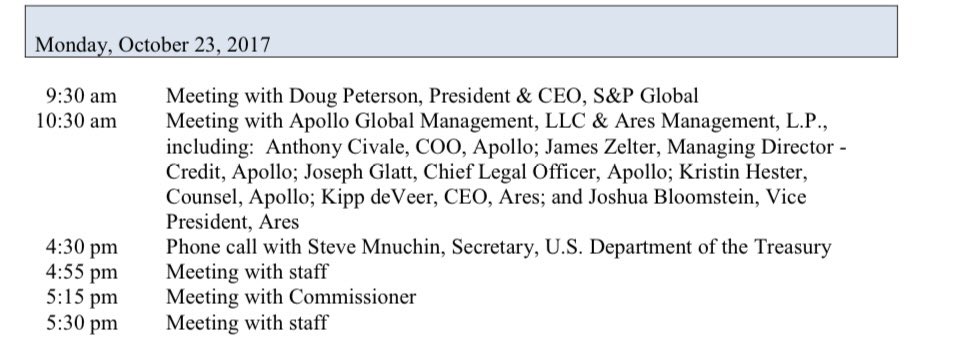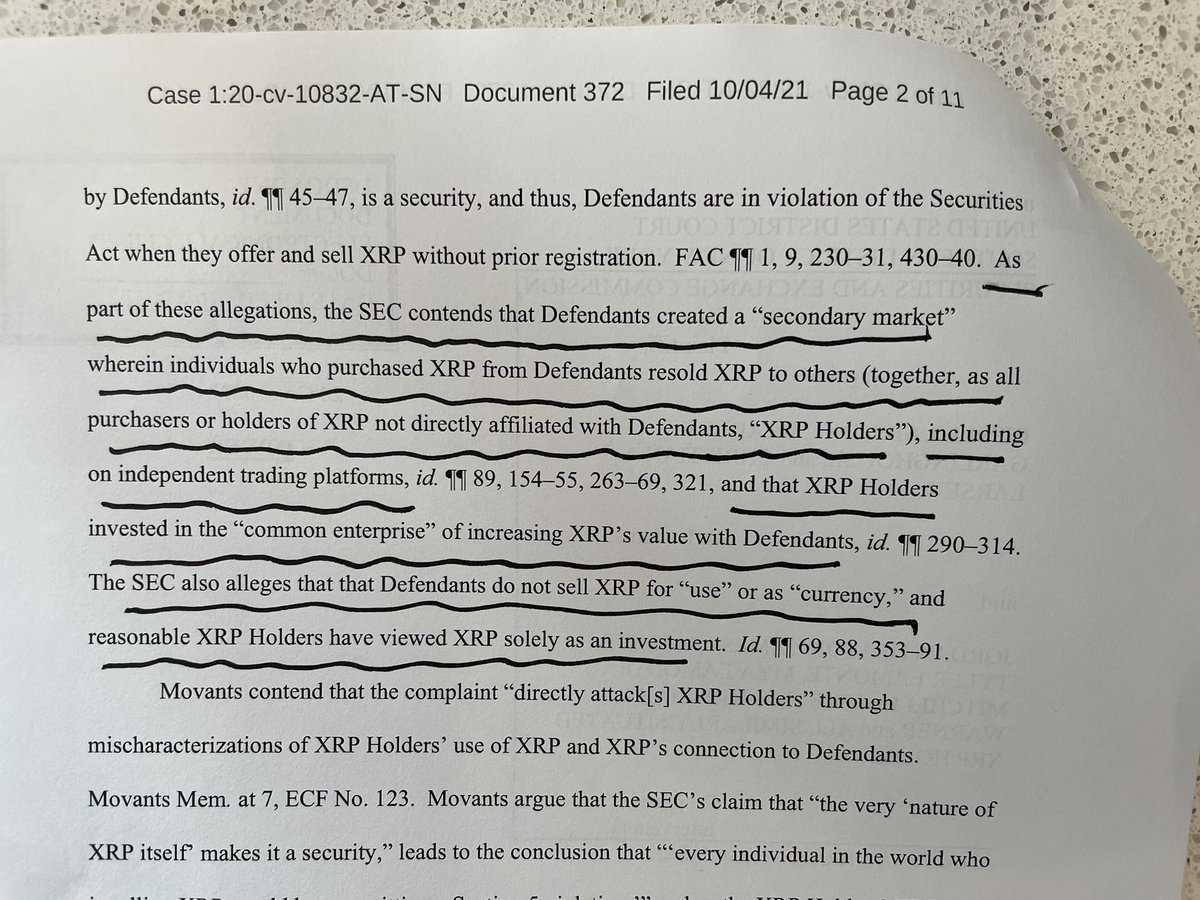
The following email and open letter was sent to @GaryGensler:
Dear Chairman Gensler,
My name is John Deaton and I am an attorney who represents over sixty-thousand XRP Holders. Judge Torres granted us amicus curiae status in the SEC versus Ripple case.
Dear Chairman Gensler,
My name is John Deaton and I am an attorney who represents over sixty-thousand XRP Holders. Judge Torres granted us amicus curiae status in the SEC versus Ripple case.
https://twitter.com/steveg437/status/1461007825388376065
The SEC, under your predecessor, didn’t limit its allegations to only include sales of XRP made by Ripple. Incredibly, the SEC lawyers are alleging the token itself is a security per se. This argument is akin to claiming the oranges were the securities in the Howey case.
With all due respect, it’s an absurd claim and its caused significant damage to retail holders of XRP - many whom utilize the token as a transfer/bridge asset - not as an investment. Over one-half of all XRP Holders purchased XRP for the first time unaware of the company Ripple.
As you know, XRP was publicly traded for over 7 years before the SEC brought its suit. If the SEC was only arguing XRP sold by Ripple constituted securities, there wouldn’t be 61,000 XRP Holders taking a position against your agency.
Judge Torres has recognized the need for the Court to consider our “meaningful perspective.”
Former Chairman Clayton agreed that the security does not strictly inhere to the underlying instrument. William Hinman made the same point during his June 14, 2018 speech.
Former Chairman Clayton agreed that the security does not strictly inhere to the underlying instrument. William Hinman made the same point during his June 14, 2018 speech.
Commissioner @HesterPeirce has stated that the digital asset itself is NOT the security. More significantly, the SDNY Court has held that the digital asset itself IS NOT the security (i.e. Telegram).
As you know, the scheme, marketing and the promises and inducements made by the promoters of the asset is what creates an an investment contract - not the underlying asset itself. Any commodity can be packaged, marketed and sold as a security.
Yet, your lawyers are arguing that all secondary market sales made by non-Ripple entities or affiliates are also investment contracts with Ripple. This argument is in direct contradiction of 75 years of caselaw and it’s being made under your watch and it’s damaging individuals.
Your mission, Sir, is to protect these people, not hurt them. I respectfully request a brief meeting with you and/or your senior staff to discuss this grave and important issue.
There is a viable path allowing the SEC to pursue Ripple for sales of XRP, but leaves the individuals holders - not connected to Ripple - alone. Judge Torres has agreed to listen to what we have to say. Will you?
I look forward to your response.
John Deaton
Amicus Counsel
I look forward to your response.
John Deaton
Amicus Counsel
• • •
Missing some Tweet in this thread? You can try to
force a refresh






